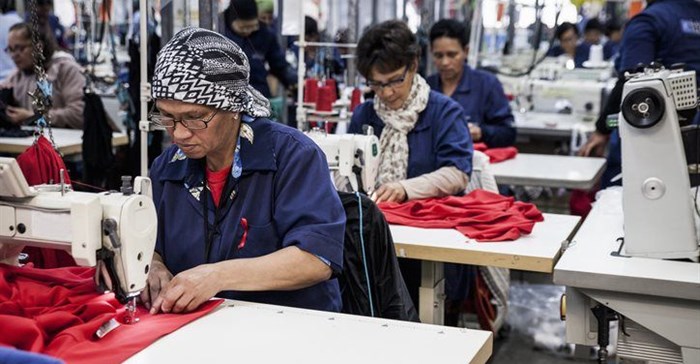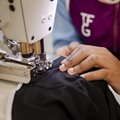The Cape Skills and Employment Accelerator has launched in Cape Town, designed to create employment opportunities for youth and women in the city's clothing and textile sector over the next three years.

Source: Getty
The skills project is the result of a partnership between the City of Cape Town and the Craft and Design Institute (CDI), and is made possible through the National Skills Fund's partnership with the City.
Goal to train 200 machinists
The plan is for CDI to recruit between 40 to 60 SMMEs to participate in the project and the goal is to train 200 machinists for the sector. The project will enable SMMEs to take on machinists at a greatly reduced cost to their business while creating learning and work opportunities for unemployed women and youth.
The learners will develop skills that include pattern making, pattern cutting, garment making, and sewing with 75% of the time spent in the business supported by 25% classroom time provided by the training provider.
The programme is designed to offer National Qualifications Framework (NQF) level training and workplace opportunities for unemployed youth and women as part of a 12-month learnership, with a view to the SMMEs employing the women at the end of the project. The learners who are recruited for the project must reside within the City of Cape Town metropolitan area, while the businesses may operate outside it.
Creative SMME businesses in the clothing and textile industry, who are building, or on the verge of building, production capacity are strongly encouraged to apply. Applications close on 21 October 2021. This project has been developed in consultation with emerging and growing businesses operating in the clothing and textile sector, and accredited training service providers.
Alderman James Vos, the City's Mayoral Committee Member for Economic Opportunities and Asset Management, commented: "Together with the City’s enterprise and investment department, we fund strategic business partners, such as the CDI, in high-growth sectors to secure the skills pipelines businesses need to succeed.
"The youth and women will be supported through an accredited learnership (NQF level 2) in either clothing, footwear, leather, and textile production. SMMEs will be able to create a job profile to suit their individual business needs and recruit participants from the learnerships with little cost to the business. Thanks to tax rebates and incentives, a business can reduce the cost even further."
Sustainble business development
Erica Elk, group CEO of the CDI, said: "This is not just a skills development project – the CDI is also placing emphasis on the development of the business and its capacity to not only host trainees but hopefully absorb them after the learnership is completed – we are aiming to grow the participating business for long-term sustainability."
Twigg added: "Urban Management, through its public employment and skills development unit (Corporate EPWP) co-funds the project with R10m per year. This amount is dedicated at ensuring that all participants receive adequate stipends, while they undergo their respective training. The project comes at a time in which government has clearly identified public employment programmes as one of the most strategic and readily available tools needed to drive increased economic inclusion.
"For the City, this partnership also means an evidence-based reorientation of the focus of the City’s EPWP into creating platforms that not only allows for participants to gain work experience while earning – but, creating platforms that allow both the economy and participants to identify and close skills gaps that will open opportunities for growth on a sustainable level."
Apply by clicking here.




































